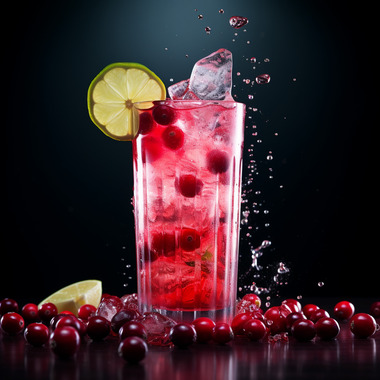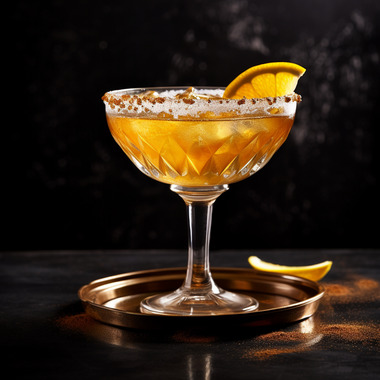Cranberry Collins vs Sidecar
Welcome to our captivating exploration of Cranberry Collins and Sidecar. In this journey, we delve into the intricate world of these two iconic cocktails, each a masterpiece in its own right. From the history-laden depths of Cranberry Collins's origins to the innovative twists that define Sidecar, we embark on a voyage through time and taste. These drinks are not just beverages; they are stories in a glass, experiences that transcend the ordinary and invite us into a realm of rich flavors and vibrant histories. Join us as we unravel the allure behind each cocktail, comparing and contrasting their unique identities in the vast tapestry of mixology.
While Cranberry Collins uses gin, Sidecar opts for cognac as its main alcohol. The Cranberry Collins is usually served in a collins glass, while the Sidecar is often presented in a cocktail glass.
Embark with us on a sensorial expedition as we unravel the nuances and subtleties that distinguish these two beverages. Discover how their individual ingredients come together in a symphony of flavors, how their histories intertwine with cultural trends, and how their serving styles enhance the overall drinking experience. It's not just a comparison of tastes, but a journey through the art and science of cocktail crafting, revealing the similarities and differences that render each cocktail uniquely captivating and endlessly enjoyable.
Cranberry Collins

Sidecar

Ingredients
- 2 oz Gin
- 1 oz Cranberry Juice
- 3/4 oz Simple Syrup
- 1/2 oz Fresh Lemon Juice
- Soda Water
- Cranberries and lemon slice, for garnish
- Ice
- 2 oz brandy
- 3/4 oz orange liqueur (e.g., triple sec or Cointreau)
- 3/4 oz freshly squeezed lemon juice
- Sugar (for rimming)
- Lemon twist, for garnish
- Ice (optional)
Recipe
- Fill a Collins glass with ice.
- Add the Gin, Cranberry Juice, Simple Syrup, and Fresh Lemon Juice.
- Stir well to combine.
- Top with soda water for a refreshing effervescence.
- Garnish with a skewer of cranberries and a lemon slice.
- Chill a cocktail glass in the freezer.
- Rim the chilled glass with sugar (if desired).
- In a shaker, combine the brandy, orange liqueur, and freshly squeezed lemon juice.
- Shake vigorously until well chilled.
- Strain the mixture into the chilled glass.
- Garnish with a lemon twist.
Attributes
Main Alcohol: Gin
Color: Pink
Flavor Profile: Tart, Fruity, Refreshing
Complexity: Simple
Popularity: Unique
Serving Glass: Collins Glass
Occasion: Casual Events, Refreshing Summer Drink
Famous Origins: The Cranberry Collins is a twist on the classic Tom Collins, using cranberry juice for a fruity and tart flavor. It's a refreshing and visually appealing drink, perfect for warm weather occasions.
Main Alcohol: Cognac
Color: Amber
Flavor Profile: Citrusy, Sweet, Balanced
Complexity: Medium
Popularity: Classic
Serving Glass: Cocktail Glass
Occasion: Evening Events, Formal Gatherings
Famous Origins: The Sidecar is a classic cocktail believed to have originated in Paris during World War I. It's a sophisticated blend of cognac, orange liqueur, and lemon juice, known for its perfect balance of sweetness and tartness.
As our exploration of Cranberry Collins and Sidecar comes to a close, we hope you've gained a deeper appreciation for the nuances that make each of these cocktails a standout in their own right. Whether it's the bold and unique flavors, the artful presentation, or the rich history behind each drink, there's always something new and exciting to discover in the world of cocktails.
Perhaps this comparison has inspired you to try these cocktails yourself, or maybe even to experiment with your creations. Remember, the beauty of mixology lies in the endless possibilities and personal touches you can bring to each glass. Cheers to your cocktail journey!